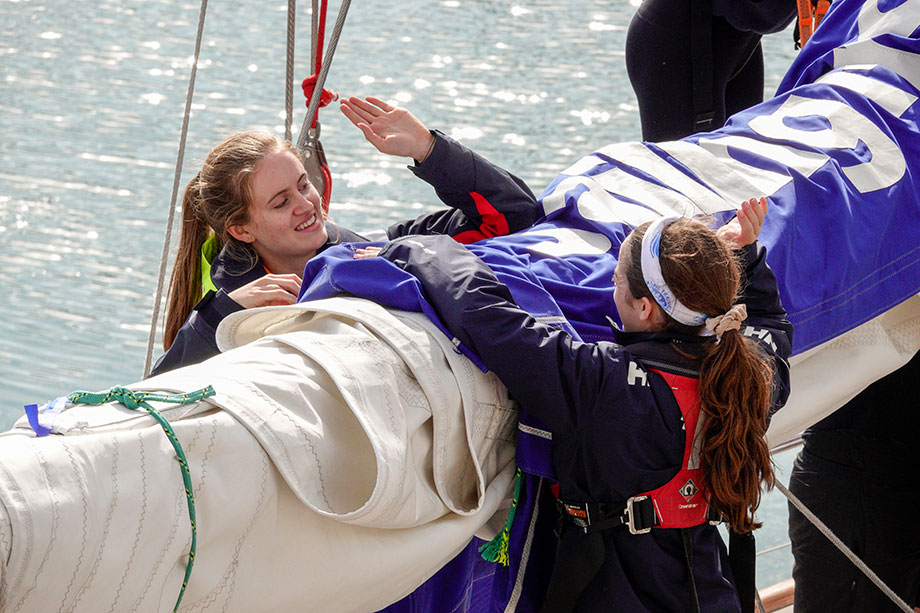This week (9-15 May) is national Mental Health Awareness Week, and ASTO (Association of Sail Training Organisations) is highlighting how UK Sail Training operators are helping to support communities recover mentally in the wake of the pandemic.
The theme of this year’s initiative lead by the Mental Health Foundation focuses on the impact of loneliness on people’s mental health and wellbeing.
Lucy Grodie, ASTO’s General Manager, said: “After more than two years of anxiety and uncertainty caused by the pandemic, more young people than ever are coming to us having experienced feelings of loneliness and isolation, meaning the work that our UK Sail Training members do is now more important than ever. Sail Training is well placed to help mitigate some of the problems caused by lockdowns, isolation and other missed opportunities for developing key socialisation skills.”
She added: “Being out on the water, away from distractions like mobile phones and the internet, provides opportunities for people to open up to others on board and form more meaningful connections with those around them. These experiences, and the skills that are developed on a Sail Training voyage stay with people long after their trip is over and can be transferred into other aspects of their home life, schoolwork and employment.”
Sail Training is not about learning to sail. Instead, it uses the experience of sailing to teach young and disabled people key life skills such as confidence, resilience and teamwork. It also creates respite opportunities for people, allowing them to take a break from their everyday life and experience something challenging and exciting.
Activities like working as a team, pulling ropes, steering the boat and even cooking are all powerful tools for improving socialisation skills and creating opportunities for people to better connect with others.
In a recent survey conducted by ASTO, 97 per cent of trainees said by the end of their voyage they enjoyed working with other people, and 98 per cent said that they were better able understand how other people think and feel.
As well as helping to combat the impact of loneliness and isolation, Sail Training can improve mental wellbeing by increasing feelings of self-worth and accomplishment, whilst encouraging people to become more physically active. This aids in the release of endorphins, such as dopamine and serotonin, which is proven to further boost mental health and wellbeing.
Each year, more than 30 UK Sail Training member organisations take around 10,000 young people to sea for positive, life-changing adventures. Those that take part in day sails and longer residential voyages include individuals, school and youth groups, and specialist mental health referral groups, amongst others.
To find out more about Sail Training and how UK Sail Training organisations can help support those dealing with mental health problems, visit www.uksailtraining.org
















